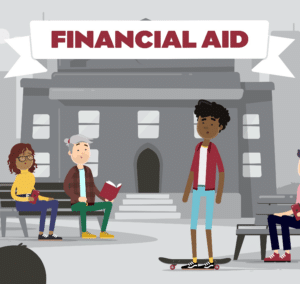 When former foster youth Erin Clews learned that she was not meeting “Satisfactory Academic Progress,” she had no idea what it meant, how she could address it or what the implications were for her as a college student. The words just didn’t mean anything, and information about it was scarce.
When former foster youth Erin Clews learned that she was not meeting “Satisfactory Academic Progress,” she had no idea what it meant, how she could address it or what the implications were for her as a college student. The words just didn’t mean anything, and information about it was scarce.
She didn’t know there was an appeal process to reinstate her aid and even if she had known, it did not consider her dire circumstances, which included unemployment and housing instability.
Thanks to Erin’s advocacy and John Burton Advocates for Youth (JBAY), a lot has changed. As a Youth Advocate at JBAY, Erin provided expert testimony about the importance of reforming Satisfactory Academic Progress requirements. These reforms are summarized in a three-minute training video that educates students about Satisfactory Academic Progress and explains how to remain in good financial aid standing.
The video, funded with the support of the College Futures Foundation, is part of a multi-tier effort JBAY has launched to support the implementation of Assembly Bill l 789 (Berman), which JBAY co-sponsored and was signed into law by Governor Newsom in October 2023. JBAY proposed AB 789 after finding that nearly one in four first-year, low-income students attending a California Community College did not meet Satisfactory Academic Progress for their first two consecutive semesters, jeopardizing their access to much-needed financial aid.
For African American (34%) and Native American (32%) students, the rates of financial aid disqualification due to SAP were twice that of White (15%) and Asian (14%) students. Unfortunately, many of these students either disenroll or lose their financial aid, marking the end of their educational journeys and creating new challenges for those who wish to re-enroll.
AB 789 went into effect January 1, 2024 and requires colleges and universities in California to take steps to prevent the loss of financial aid. These include adopting a common set of Satisfactory Academic Progress standards, removing additional requirements that are more restrictive than those federally mandated, and ensuring students have clear pathways to regain financial aid.
In addition to the video, JBAY released a comprehensive implementation guide and is also hosting a community of practice, where campuses will receive hands-on assistance implementing the bill’s provisions.
Senior Project Manager Sarah Pauter leads the effort and explains that this kind of implementation support is critical to support campuses, “Like many students, Erin was not aware of her institution’s SAP standards until she was informed she was losing her financial aid. A major focus of the community of practice and technical assistance provided by JBAY will be working with campuses to implement proactive and accessible messaging about their SAP standards so students know what’s required of them to keep their aid and where to go for help if they are concerned their aid might be in jeopardy.”
Fortunately, Erin persevered. She decided to try again and found that the criteria to prove a “special circumstance” still had not changed. That did not dissuade her, “I was determined to be successful. I had to attend school for two years while paying tuition and fees out-of-pocket, and eventually, I was able to transfer.” She currently attends the University of California Santa Cruz, majoring in history and education.
